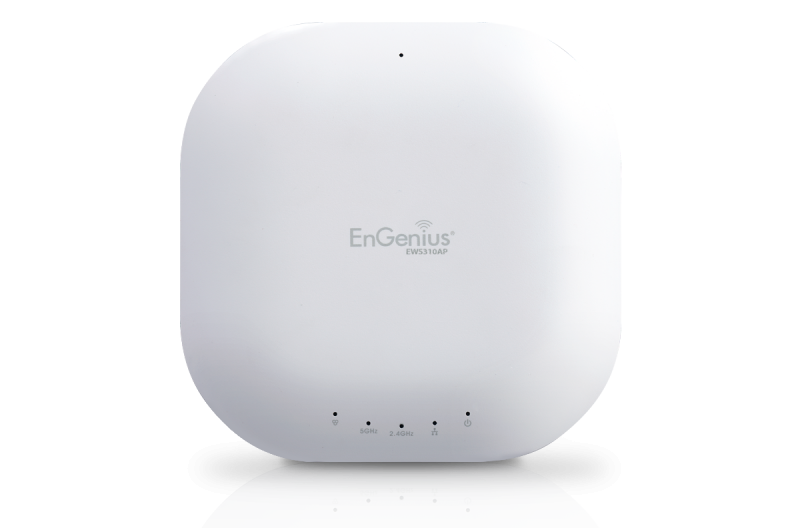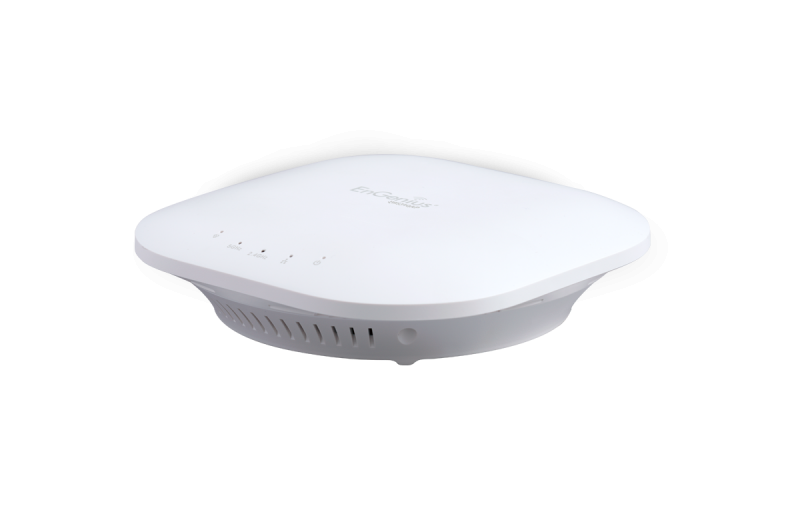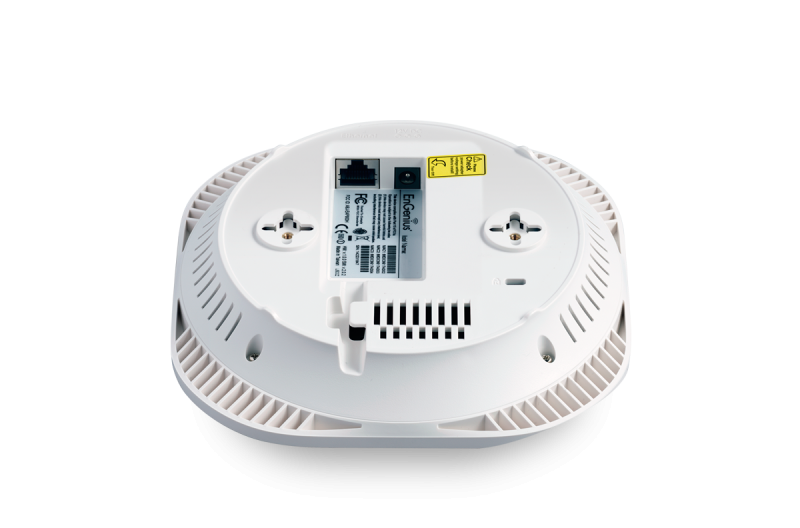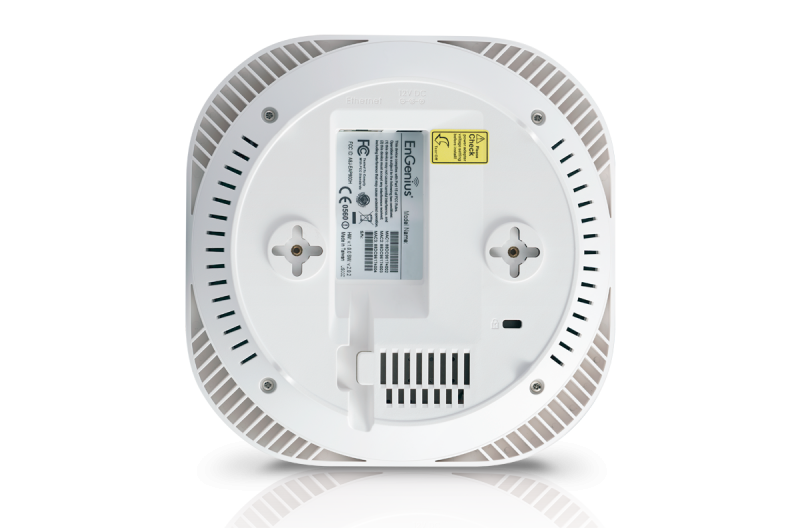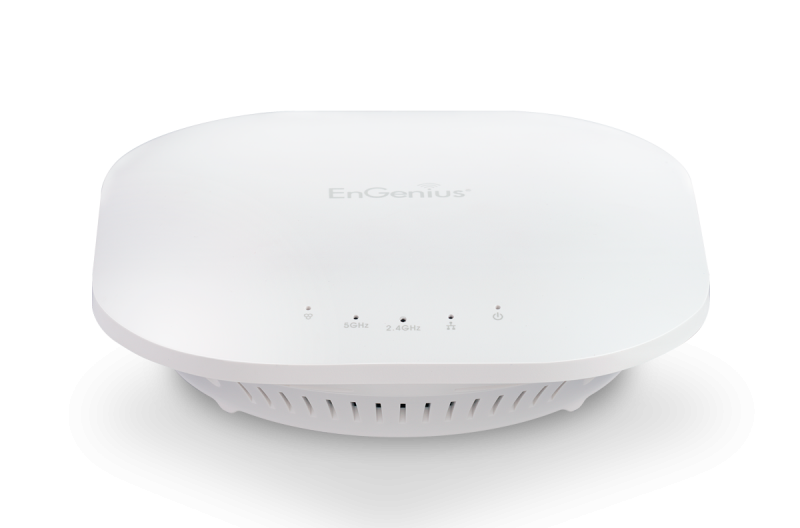-
Aten KVM
-
Axis Camera
-
Aver Conferencing
-
Austin Hughes
-
PoE Switch
-
NVR & NAS
-
WiFi
-
UPS
-
Video Wall Controller
-
Rack
-
Kinan KVM Switches
Hỗ trợ khách hàng
Kinh doanh dự án
Mr Hiếu: 079 9999 978
Email: [email protected]
Kinh doanh bán lẻ
Mr. Quốc: 0968 02 7878
Email: [email protected]
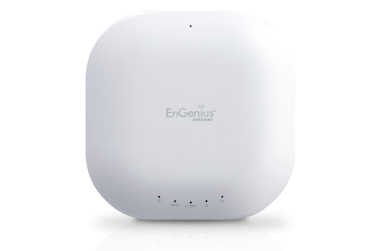
EWS310AP
Mã sản phẩm: EWS310AP
Mô tả: Neutron Series Dual band Wireless N600 Managed Indoor Access Point
Xuất xứ: Taiwan
Bảo hành: 12 tháng
Chi tiết sản phẩm
| < | Supports IEEE 802.11a/b/g/n standards with up to 300 Mbps on each band |
| < | Up to 29 dBm high RF power on 2.4 GHz. Up to 26 dBM on 5 GHz for enhanced wireless coverage |
| < | Dynamic Channel Optimization |
| < | Fast Roaming when used with a RADIUS server |
| < | 4 internal MIMO antennas/Dual band. Designed for ceiling or desktop deployments |
| < | Band Steering shifts Dual band clients to 5 GHz for better throughput performance |
The Dual Band (up to 300 + 300 Mbps) Ceiling Mount EWS310AP can operate as a stand-alone Access Point connecting to third-party PoE-capable (IEEE 802.3at/af) Switches but more control and versatile management of the Access Point is achievable when it is part of an EnGenius Neutron Series Wireless Network Management Solution because the AP includes firmware that enables it to be immediately discovered, configured, monitored and managed from a compatible Neutron Series PoE+ Controller/Switch (EWS5912FP, EWS7928FP or EWS7952FP). This capability enables IT managers to deploy and manage up to 50 EWS310APs from Neutron Series Controller/Switch allowing for simplified management from one browser-based interface including simultaneous firmware upgrades, clustering, traffic monitoring, bandwidth steering and many other features that can be reset or reconfigured from the convenience of the IT manager’s desktop.
Technical Specifications
Hardware
RF: 2.4 and 5 GHz Frequency Bands
Standard: IEEE 802.11a/b/g/n
Radio I: 11b/g/n: 2.412~2.484 GHz
Radio II: 11a/n: 5.18-5.24 and 5.26-5.32 and 5.5-5.7 and 5.745-5.825 GHz
Data Rate: Up to 300 Mbps in both frequency bands
Memory: 64MB
Flash Memory: 16MB
Peak Power: Up to 15.6W
Antenna Array
Four (4) Internal 5 dBi Omni-Directional Antennas RF: 2.4 and 5 GHz Frequency Bands
Physical Interface
1 x RJ-45 Gigabit Ethernet (10/100/1000 Mbps) - PoE capable
1 x Reset Button
1 x Power Connector
Power Requirements
Power Supply: 100 to 240 VDC ± 10%, 50/60 Hz
(depends on different countries)
Active Ethernet (Power-over-Ethernet, IEEE 802.3at/af)
Power Adapter (United States) 48VDC/0.375A
Device: 12V/2A
Modulations
OFDM: BPSK, QPSK, 26-OAM, 64-QAM, DBPSK, DQPSK, CCK
Operating Channels
2.4 GHz: US/Canada 1-11
5 GHz: Country dependent for the following ranges:
36, 40, 44, 48, 52, 56, 60, 64, 100, 104, 108, 112, 116, 120, 124, 128, 132, 136, 140, 149, 153, 157, 161, 165
Software
Operation Modes
Access Point, Mesh AP (available soon)
Multiple BSSID
Supports up to 8 BSSIDs per radio
LAN
IP (check validity and DHCP server IP range) MAC
SSID-to-VLAN Tagging
Supports 802.1q SSID-to-VLAN tagging
Spanning Tree
Supports 802.1d Spanning Tree Protocol
Wireless
Wireless Mode: 11a/11b/11g/11n
Channel selection (settings vary by country)
Channel bandwidth (Auto, 20 MHz, 40 MHz)
Transmission Rate
2.4 GHz: 11n only, 11b/b/n mix, 11b only, 11b/g, 11g only
5 GHz: 11n only, 11a/n mix, 11a only
Wireless Management Features (with a Neutron Series Switch)
Access Point Auto Discovery and Provisioning
Access Point Auto IP Assignment
Access Point Cluster Management
Remote Access Point Rebooting
Access Point Device Name Editing
Access Point Radio Settings
Band Steering
Traffic Shaping
Fast Handover
Seamless Roaming (requires RADIUS server)
Access Point Client Limiting
Mesh Network*
Wireless Security (WEP, WPA/WPA2 Enterprise, WPA/WPA2 PSK)
VLANs for Access Point- Multiple SSIDs
Guest Network
Access Point Status Monitoring
Wireless Client Monitoring
Wireless Traffic & Usage Statistics
Visual Topology View
Floor Plan View
Map View
Secure Control Messaging
SSL Certificate
Local MAC Address Database
Remote MAC Address Database (RADIUS)
Unified Configuration Import / Export
Bulk Firmware Upgrade Capability
Intelligent Diagnostics
* Mesh networking mode available soon as a free firmware upgrade
** User capacity performance results may vary based on topology configuration, structural and architectural elements, environmental factors, type of data traffic, RF capabilities of client devices, distance, RF interference in the operating environment and other factors.
